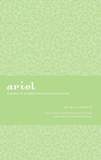Unsettling the Environment: The Violence of Language in Angela Rawlings’s Wide Slumber for Lepidopterists
Keywords:
Experimental Poetry, Ecocriticism, Postcolonial Gothic, Violence, AnimalsAbstract
Canadian poet Angela Rawlings’s Wide Slumber for Lepidopterists (2006) raises questions about the violence of language in the context of a settler-colonial nation. Set in (and dedicated to) Northern Ontario, the text reveals the region’s fields and lakes as environments caught up in a violent history. This article argues that Rawlings’s “unsettling” use of experimental, “nonhuman” poetry allows her to critique the role that anthropo-, phallo-, and euro- centric language has played in the (discursive) settling of Canada. By exploring how Rawlings employs what Cynthia Sugars calls the “postcolonial gothic” to disturbingly metamorphose human and nonhuman bodies, this article shows how a postcolonial ecocritical reading of Wide Slumber reveals the (at times violent or difficult) intertwining of national, cultural and ecological concerns. Ultimately, the concept of “unsettling” unites the postcolonial, the environmental and the gothic within Rawlings’s Wide Slumber, a poem that challenges the process of colonial settlement and discourse, shows concern for the well-being of the natural environment, and utilizes gothic disturbance.


